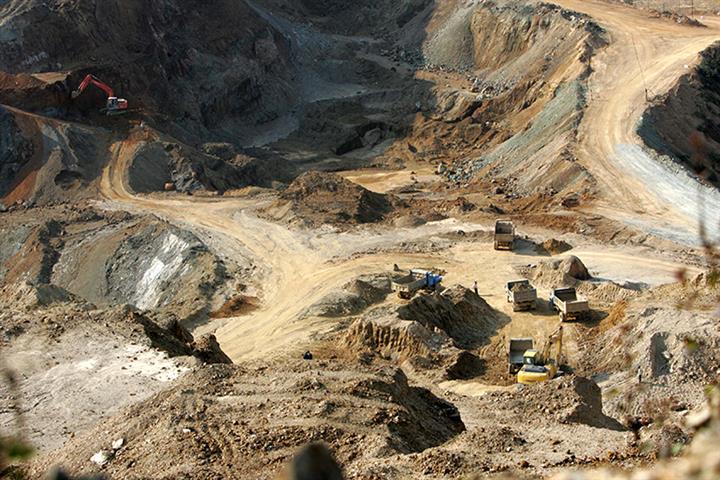 Yongxing's Lithium Extraction Halt in China’s Jiangxi Is Linked to Thallium Pollution
Yongxing's Lithium Extraction Halt in China’s Jiangxi Is Linked to Thallium Pollution(Yicai Global) Dec. 8 -- Excessive levels of the toxic chemical thallium may be the reason behind the pause in production at Yongxing Special Materials Technology’s lithium carbonate factory in eastern Jiangxi province, according to an unpublished government report that was shown to Yicai Global.
Four factories, including Yongxing’s, are being probed by environmental watchdogs in Gao’an and Shanggao, both county-level administrations under the city of Yichun, after excessive levels of thallium, which is highly poisonous and can cause cancer should it enter the human body, was found in water samples from the nearby Jin River.
On Nov. 29, Yongxing said that the company’s lithium carbonate plant in Yichun would be temporarily closed due to the abnormal water quality of the Jin River, which has prompted an investigation. The river is the main source of drinking water for residents in the region.
Although the results of the latest government probe have yet to be disclosed, an earlier report by the province’s Department of Ecology and Environment, which investigated four lithium miners, four lepidolite mineral processers and seven lithium carbonate producers in April and May, could shed light on the situation. It is not known if this report has been made public yet.
In the report, Yongxing’s unit in Yichun city is called out for deliberately mixing sludge containing thallium with other kind of pollutants to avoid paying high solid waste disposal fees.
Thallium content peaked at 269 milligrams in each kilogram of emission samples from the plant, the report said. It is likely to lead to significant amounts of thallium being leaked into the environment in the factory’s waste gas, waste water and solid waste, resulting in "uncontrollable environmental risks," it added.
Many companies are building lithium extraction projects without government approval, and are not properly handling waste materials containing thallium, the report said. The whereabouts of this waste remains unknown, causing severe environmental risks.
Zhejiang Kanglongda Special Protection Technology was also named in the report as having thallium compounds in its waste material. Its unit in Yichun reopened yesterday after a four-day shutdown due to ‘equipment repair and maintenance work,’ the company said the same day.
Staff at the province’s and Gao’an's environmental departments said they were unaware of the test results of water samples from the Jin River when responding to Yicai Global’s queries. And no one answered Yicai Global's phone call to Yichun's environmental regulator.
An environmental protection storm against Yichun’s lithium carbonate industry is raging, Yicai Global learned from authoritative sources close to the city's environmental regulator. Eight suspects, including the person in charge of a solid waste recycler, have been arrested.
Yichun has the world's largest lepidolite mineral resources, which is the key raw material used to make lithium carbonate, which in turn is used to manufacture electric car batteries. But lepidolite ore usually contains thallium compounds. When extracting lithium from the ore, thallium will enter industrial wastewater and is normally discharged after special processing.
Yichun is home to almost one third of China’s minable lithium oxide and 12 percent of the world’s. Last year, the city produced 81,000 tons of lithium carbonate, a quarter of the country’s total output, according to data from local government.
Editors: Tang Shihua, Kim Taylor